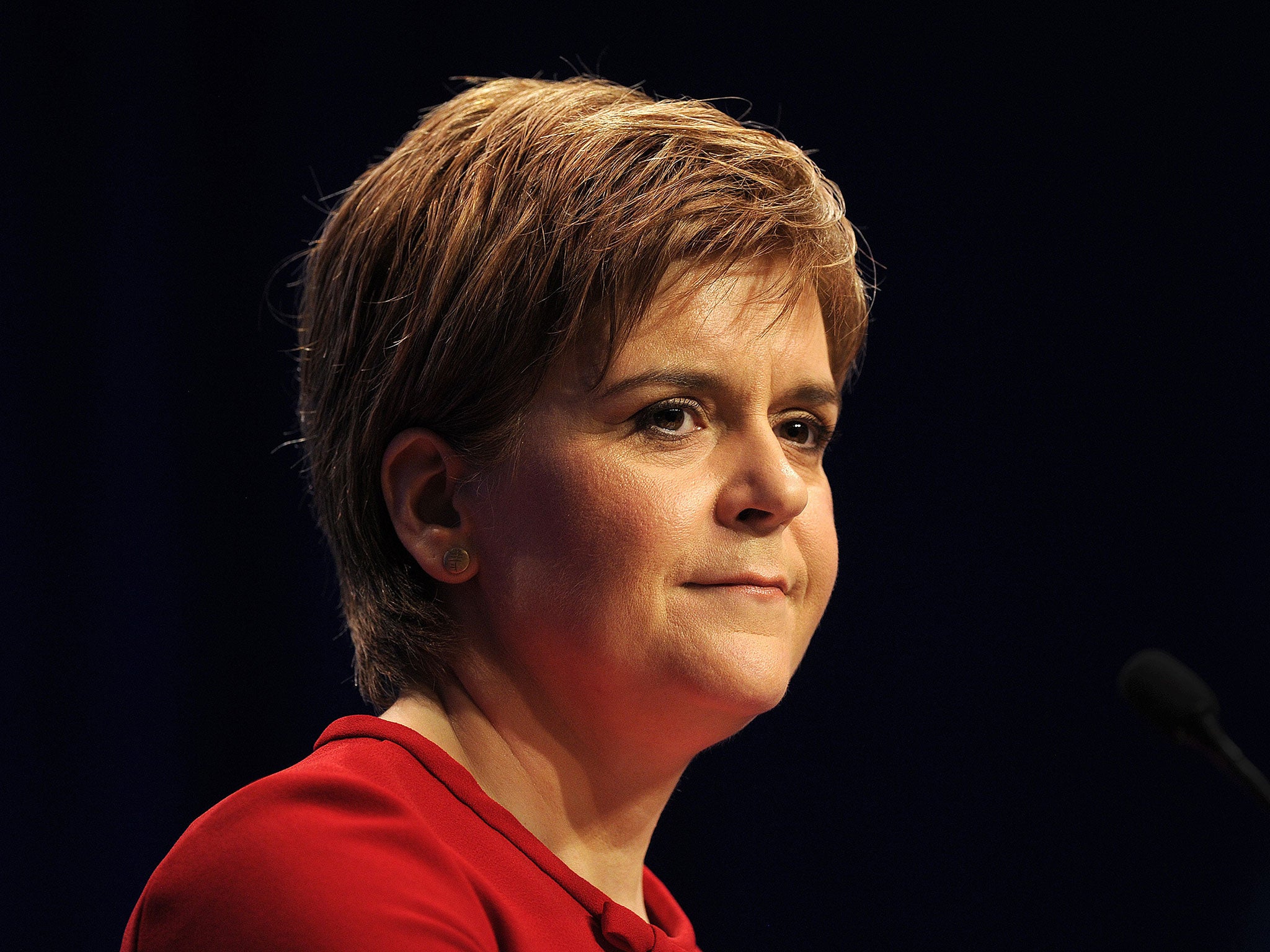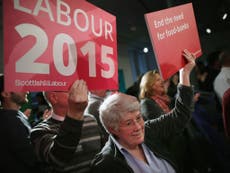Sturgeon’s position on air strikes is about politics not pacifism
The party has ended up in the curious position of hiding behind a Commons report (it doesn’t usually take such documents so seriously), and in effect ceding Scottish Government “foreign policy” to a Russian or Chinese Security Council veto

Since the 2003 invasion of Iraq, the Scottish National Party has often given the impression that it’s a pacifist movement, generally opposed to foreign intervention. The reality, as in so many other areas, is more nuanced. Four years ago, for example, the then SNP leader Alex Salmond supported air strikes in Libya, while his strong opposition to Iraq always hinged upon its legality rather than broader principle.
The SNP’s position on Iraq – which helped it oust Labour as Scotland’s main centre-left party – is the key to understanding its stance on Syria. Although foreign affairs and defence are matters decided upon in Westminster, devolved politics pays little attention to such a distinction: Nicola Sturgeon is required to state her position.
So how the First Minister handles that responsibility will be a significant test of her leadership over the next few weeks. As ever, she’s far from dogmatic. Having hitherto maintained a strong line against potential air strikes, most recently at the SNP’s annual conference, she has finessed her position in the wake of the Paris attacks, saying she’s prepared to “listen” to the Prime Minister’s case.
On Friday, the United Nations Security Council passed a resolution authorising “all necessary measures” to combat Isis, but stopped short of invoking Chapter VII of the UN Charter, which would have unequivocally sanctioned military action. Again, since Iraq this has been a crucial benchmark for the SNP: it regards legality as the most important prerequisite for intervention, and a detailed post-intervention plan is a necessity, too. It’s difficult for the SNP to budge on either of these points; it would appear hypocritical given its decade-long flagellation of Tony Blair for having disregarded both. Yet the party has ended up in the curious position of hiding behind a Commons report (it doesn’t usually take such documents so seriously), and in effect ceding Scottish Government “foreign policy” to a Russian or Chinese Security Council veto.
Of course there’s a degree of cynicism. If opposition to air strikes were truly a point of “principle” then Sturgeon would be holding firm. If it’s true that air strikes would be ineffective (as the SNP has argued) then the Paris attacks, however brutal, shouldn’t make any difference. But of course that’s the point: they have made a difference to the mood, both in Parliament and the country.
The SNP takes its international profile seriously – particularly if there’s to be another independence referendum – and realises the importance of being perceived as a responsible player in international politics. Crude domestic politics is also a factor. The SNP has always carefully positioned itself to reflect mainstream public opinion, and ahead of next May’s elections to the Scottish Parliament it can’t afford to be on the wrong side, at least if it wants to retain an overall majority. The SNP could, however, still find itself opposing air strikes if the party deems the Prime Minister’s plan of action or UN authorisation to be inadequate. But it’ll play it by ear, gauging public opinion to assess if it’s as hawkish as some polling seems to suggest.
While the SNP has never been strong on detailed foreign policy, it usually handles the politics deftly. Sturgeon is showing she is no exception.



Join our commenting forum
Join thought-provoking conversations, follow other Independent readers and see their replies